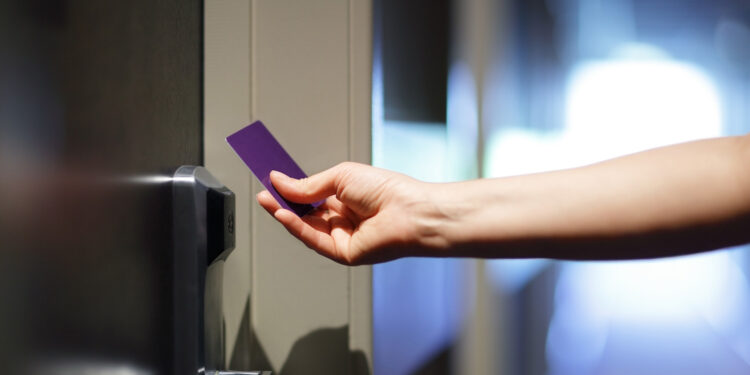Hotel Security for Business Aviation Travel – Part 2: Room Considerations & Tips

This business aviation blog post continues from our article last week, titled “Hotel Security for Business Aviation Travel – Part 1: General Considerations.”
A hotel room is not just a hotel room. Your safety and security at international hotel locations will be impacted by many non-room specific considerations including surveillance of public areas, access controls to guest areas, fire safety, and room security factors. There are simple tips and procedures crews can take advantage of to boost levels of personal security while staying at hotels.
The following is an overview of what you need to know:
1. Splitting up passengers and crew
While some operators prefer to place crews and passengers in different hotels, it’s not a security issue if they’re staying at the same hotel. It’s important, however, to follow all security recommendations in your hotel brief and to try to stay on floors two through seven (preferably two through five).
2. Securing valuables in the room
Best practice is to travel with only the technology devices and valuables you actually require for the trip. Work with your internal security department, in advance, to ensure that data on your electronic devices is adequately password protected. While there’s much debate among security companies on the best way to hide/safeguard valuables in a hotel room, it’s usually best to split things up. Leave some valuables – such as documents, cash and electronics – in the room safe for when you are out of your room, but be aware that this is not always a 100% secure proposition. It’s recommended to keep some valuables locked in your luggage, just in case the room safe is compromised. It’s good practice to leave your passport in the room safe, as well as some of your credit cards and cash, and to travel outside the hotel with only what you need for the day. Keep copies of all important documentation – passport, driver’s license, IDs, credit cards plus a list of high value items you have with you – in your luggage in the event your purse/wallet etc. gets stolen.
At night, you may want to consider transferring your passport and other items from your safe back to your bag in case you need to make an emergency egress—this way, you are ready to grab and go.
3. Fire safety
Particularly when staying at lesser known hotel brands it’s important to confirm that rooms have smoke detectors, emergency exits are not blocked, and adequate fire extinguishers available in common areas. One of the leading causes of deaths at hotels is from fire and/or smoke exposure. Best practice is to book rooms on floors two through seven. You don’t want the ground floor as you may be in immediate danger if there’s an attack on the hotel. But, if there’s a fire, most fire truck ladders only reach up to the seventh floor.
4. Portable items you can have to increase your in-room protection
- It’s good practice to carry and use tamper tape to secure valuables in your room safe and luggage.
- Some crews carry personal smoke detectors to use in the room – just in case the room smoke detector is not working.
- Always have a smoke hood, as fire is the leading cause of death internationally. Smoke detectors will alert you to a serious situation but, at that point, you’re at risk of breathing in smoke.
- Bring a small flashlight with you.
- Have a door stop available so that someone – even with a room key – will not be able to get in if you don’t want them to.
- Consider carrying a simple battery-power motion sensor alarm to alert you if enters your room while you’re away.
5. Additional Reading: Hotel Security Tips – Series Index
Note: Links will be updated as articles are published.
- Part 1 – general considerations
- Part 2 – hotel room considerations
- Part 3 – security briefs
Conclusion
While common sense, and awareness of activities and potential security threats around you, is always best practice there are additional steps traveling crews can take to further enhance personal security during hotel stays.
Questions?
If you have any questions about this article or would like assistance obtaining a hotel security brief, contact me at traciecarwile@univ-wea.com.
Stay tuned for Part 3, which covers hotel security briefs.




